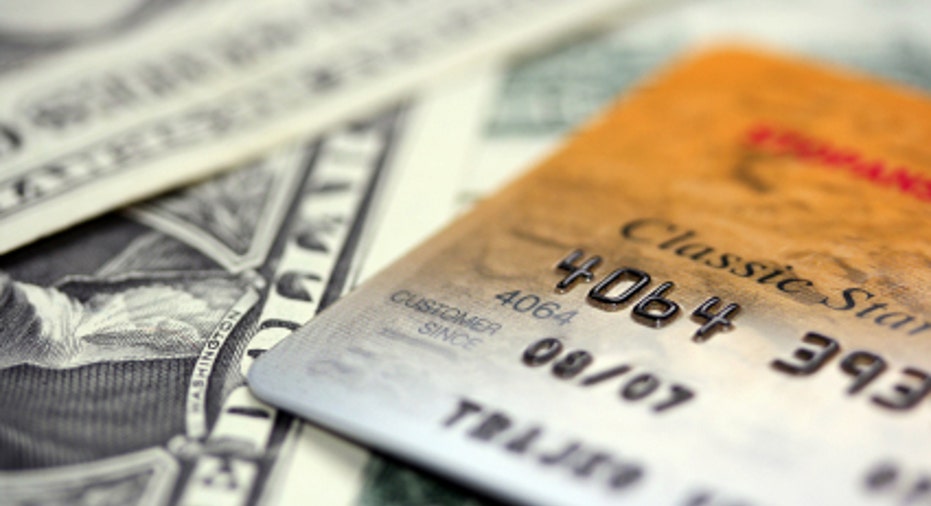Swipe it! When it's Smart to Pay With a Credit Card

Credit cards have gotten a bad rap recently and for good reason: if not used responsibly, they can lead quickly lead to burdensome financial debt.
According to Creditcards.com, the average credit card debt per household with credit card debt in the U.S. stands at $14,687.
The 2008 financial crisis unveiled our nations debt crisis and put credit card companies under the scrutinizing eye of federal regulators. The CARD Act, which was signed into law by President Obama in May 2009, was designed to protect consumers from unfair credit card practices and eliminate predatory credit card lending tactics.
But experts say whipping out the plastic isn't always a bad idea. The key is keeping track of purchases, evaluating whether transactions make financial sense and paying them off on time.
"A bank-branded card with no incentives is useless. You might as well be paying cash," says Greg McFarlane, author of Control Your Cash: Making Money Make Sense. "Almost as useless is a card & that grants you rewards that take forever to redeem, or that you wouldn't use in your daily life anyway."
Other than offering rewards, credit cards can also provide retailer discounts, identity theft and travel protections and extended product warranties. That means consumers can profit if they gain more from a card than they pay in interest and fees.
Timothy Wiedman of Nebraska has redeemed $6,000 in cash rewards from his annual, no-fee General Motors MasterCard on new Chevy purchases since 1999.
"Earnings can be combined with many of the other discounts that GM offers & since I rarely carry a balance on my GM card, I really saved $6,000," he says.
Here are seven scenarios that experts recommend saying, charge it:
When you're buying from an unknown retailer
Most credit cards offer guarantees against fraudulent merchants, contractors and damaged purchases; if you haven't purchased from a retailer before, charge it.
"This way, should there be a problem, you can dispute the charge with the credit card company to protect yourself. If you had paid via check or cash, there's not much that can be done," says Scott Gamm, founder of HelpSaveMyDollars.com. You don't pay for the charge until it's resolved.
To pay bills
Using credit cards to pay bills can be a great way to rack up rewards dollars and points for things you've already worked into your budget anyway, Gamm says.
To avoid mistakenly spending money, set up automatic payments from your bank to the card at the same time of your bills to the card.
When you can pay the balance in full each month
"Achieving the zero balance at the end of the month&should be a reflex, like inhaling," McFarlane says. "If you can afford to buy something, you can afford to put it on your card. Ability to pay and ability to place payment on a card should be identical."
Paying your bill in full every time can lead to significant rewards.
I put everything I can on the card and pay it off in full each month. I earn anywhere from four to eight free flights on Southwest Airlines a year, says Andi Wrenn, a Boston-based financial counselor.
When booking a vacation
If your credit card offers benefits like trip cancellation insurance, lost baggage insurance and rental car insurance, make sure to use it to book your hotels, flights, transportation and activities.
When making a big-ticket purchase
"Most people have no idea that a lot of cards will double manufacturers' warranties on certain products," says Kelly Passey, executive vice president of Access Development, which creates and manages rewards programs for financial institutions. "Fraud protection also comes in handy on large purchases."
This protection can be very helpful, just ask financial educator Denise Winston. "On my Costco American Express, I have used the extended warranty and purchase protection several times & with expensive sunglasses that got damaged, a flat iron purchase that was lost in the mail and a damaged cell phone."
If you'd like to make payments on a large purchase (like a refrigerator) apply for a credit card with a 12-month, 0% introductory rate and pay it off during that time for a short-term, interest-free loan.
When you need to build credit
Responsibly managing a credit card helps establish a strong credit score.
Experts advise consumers looking to create a favorable credit history use a cash-rewards credit card to make small purchases--like gas and groceries--and pay off the balance each month.
Remember: Opening too many credit cards can have a negative effect, so choose wisely.
To start a small business
Loans from banks can be hard to come by these days. Experts say entrepreneurs that can afford to pay off the bill quickly and have a low credit card rate should use plastic to float business from month to month or to purchase startup equipment.
"I used credit to start my business because I have great personal credit - about $100,000 available averaging about 8%, says business owner Kara Ortiz. I wasn't ready to have my credit dinged again with an inquiry for a large line of credit."



















